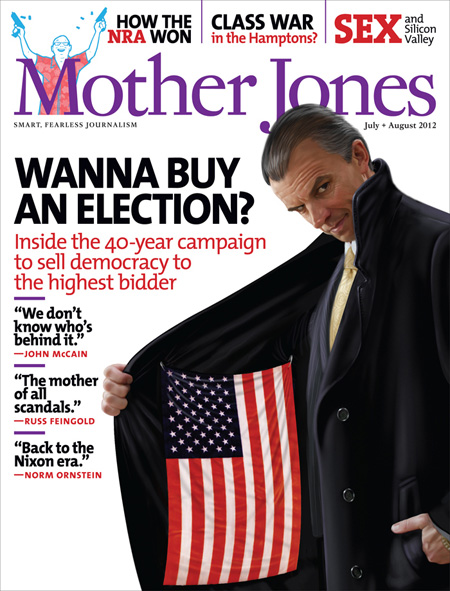'SCIENTIFIC' APPROACH TO CAMPAIGN MANAGEMENT
Initially also product marketing was conceived as informing people about the advantages of a product, and allowing them to make rational decisions. This is, however, no longer the case.
The documentary The Century of the Self tells how Edward Bernays, Freud's American nephew, revolutionized marketing, by putting the key insight of his great uncle—that people's choices and decisions are not necessarily, and even not primarily, rationally motivated—to good commercial use.
Once this other approach was in place, it was not difficult to prove—scientifically, by gathering data and doing statistics—that the new way was far more cost-effective.
The next step—carrying this bit of systemic evolution into politics as well—was perhaps inevitable. "Elections create a certain kind of society—a society in which uninformed people make irrational decisions," claims Noam Chomsky in a televised interview. "That's essentially the structure of presidential campaigns. And it's very strikingly similar to the way the same institutions—advertisers, public relations...—try to construct the markets."
♣
In 1992 Democrat Bill Clinton succeeded in interrupting the Republican domination that marked the 1980s Reagan-Bush era.
The following account I saw, I believe, either in in O. Stone's Untold History of the United States, or the documentary The Century of the Self about Edward Bernays, Freud's nephew who revolutionized marketing; doesn't matter which, both are relevant. It illustrates how also the democrats switched to the 'scientific' campaign management, during the 1992 presidential elections.
Bill Clinton: From now on we'll play entirely by their rules; we'll use polls to find out what the people want to hear, and we'll offer them that in the campaign.
Campaign manager: But Bill, what's the point of winning the election, if you are not going to have a policy?
Bill Clinton: What's the point of having a policy, if we don't win the election?
Here is, very roughly, how the oldest modern democracy, the United States, has been evolving; and we may wonder if other democracies might eventually follow.
♣
MARKETING CAMPAIGNS NEED MONEY
It costs money to fund the campaign. It is like advertising. So, how can we do it? Well, you need to align yourself with large interests. And make promises.

Are large campaign contributions by large corporations given with no strings attached? Or is their influence on Washington influencing or even steering the evolution of the American governance—and consequently of other systems as well?
See the televised discussion on Democracy Now.